Best Full-Spectrum CBD Gummies for Sleep: Natural Solutions for Restful Nights

Struggling to fall asleep or stay asleep? You’re not alone - the NHLBI reports that nearly 70 million Americans deal with ongoing sleep issues. If you’ve been searching for something natural that actually works, full-spectrum CBD gummies are quickly becoming one of the most talked-about options.
Unlike regular CBD, full-spectrum formulas include the plant’s full lineup of cannabinoids, aromatic terpenes, and trace THC, which researchers say can work together to promote deeper, more restorative rest.
Ready to see which gummies are worth trying and why they might be the key to finally waking up refreshed? Let’s help you find the best full-spectrum CBD gummies for sleep.
Key Takeaways
-
Full-spectrum CBD gummies combine cannabinoids like CBD, CBN, and CBG with terpenes to promote deeper, more restful sleep.
-
The entourage effect allows multiple plant compounds to work synergistically, often outperforming broad-spectrum and isolate products.
-
Optimal dosing for sleep ranges from 20 to 300 mg nightly, depending on individual factors, with lower doses better for wakefulness and higher doses better for sedation.
-
Bioavailability improves significantly when CBD is consumed with high-fat foods, potentially increasing absorption up to 17-fold.
-
Sleep routines that include consistent timing, reduced screen exposure, and proper bedroom temperature can enhance CBD’s calming effects.
-
Full-spectrum CBD shows a strong safety record, with most side effects being mild and rare at sleep-supporting doses.
-
Shop Mellow Fellow’s Full-Spectrum CBD Happy Blend Gummies and check out the full range of premium blends formulated for better sleep and relaxation.
Why Full-Spectrum CBD Stands Out for Sleep
Full-spectrum CBD contains all of hemp’s natural compounds, including cannabinoids like CBG and CBN, terpenes, flavonoids, and trace amounts of THC under 0.3%.
Researchers writing for the Journal of European Journal of Drug Metabolism and Pharmacokinetics reported that this combination appears to work together through what is known as the entourage effect, which may boost CBD’s overall benefits compared to isolates or broad-spectrum products.
What Makes Full-Spectrum Different
Broad-spectrum CBD retains many plant compounds but excludes THC, which can reduce some of the potential synergy.
CBD isolate, on the other hand, is pure cannabidiol without any other cannabinoids or terpenes. This makes isolates useful for those avoiding THC completely, but they often lack the layered benefits people report when using full-spectrum options.
The Role of the Entourage Effect
The entourage effect describes how cannabinoids and terpenes appear to be more effective when they work together rather than individually.
Publications such as Cannabis Health News note that terpenes like myrcene and linalool, commonly found in full-spectrum extracts, have calming properties that may support restfulness and a sense of relaxation before bed.
Why It Matters When Choosing Products
For people using CBD specifically for sleep, full-spectrum products may offer broader support thanks to their inclusion of multiple cannabinoids and terpenes.
Broad-spectrum and isolate products remain useful for those concerned about THC content, but the fuller cannabinoid profile of full-spectrum extracts tends to align more closely with what researchers have observed in sleep-related studies.
If you’re looking for a great full-spectrum CBD product, try our Happy Blend Tropic Medley Gummies - designed to calm you down, promote a balanced state of mind, and support healthy sleep habits. Another great option to help you get a good sleep is this Dream Blend Phantom OG Vape - a strong indica with sedating properties.
Sleep-Promoting Cannabinoids in Full-Spectrum Products
Full-spectrum CBD products contain multiple cannabinoids that work together through what researchers call the entourage effect.
Each cannabinoid interacts with the body differently, and several have been studied for their potential to improve sleep quality, shorten sleep latency, or address conditions that disrupt rest. Below is a closer look at the key cannabinoids most relevant to sleep.
CBD (Cannabidiol)
CBD is non-intoxicating and one of the most researched cannabinoids for sleep. A review in Current Psychiatry Reports highlights evidence that high doses of CBD (around 160 mg per day) may extend total sleep time and reduce night-time awakenings in individuals with insomnia.
It appears to act partly through its calming effects on anxiety, which can help people fall asleep more easily. Additional findings suggest that CBD supports REM sleep regulation and improves overall sleep quality.
CBN (Cannabinol)
CBN is often described as the “sleep cannabinoid” due to its reputation for promoting relaxation and reducing nighttime disruptions. Unlike THC, it is only mildly psychoactive and is typically formed as cannabis ages. Until recently, most claims about CBN were anecdotal, but new clinical data is beginning to clarify its role in sleep.
A 2024 double-blind, randomized, placebo-controlled study published in Experimental and Clinical Psychopharmacology examined 293 adults with self-reported poor sleep quality. Participants took 20 mg of CBN nightly for seven days, either alone or combined with varying doses of CBD.
Those receiving CBN alone experienced a meaningful reduction in the number of nighttime awakenings and overall sleep disturbance compared to placebo, without reporting daytime fatigue. Interestingly, adding CBD did not increase these benefits, suggesting CBN’s sleep-promoting effects may work independently.
Our Double Dream Vape combines sleep-promoting CBN with a delicious flavor - read more about the best CBN products for sleep - and if you’re unsure about the differences, read our article on CBD vs. CBN for more information.
CBG (Cannabigerol)
CBG is a precursor cannabinoid that converts into other compounds like THC, CBD, and CBC during plant growth. Research on CBG and sleep is still emerging, but a 2024 study in Scientific Reports found that CBG reduced stress and anxiety in participants without causing intoxication or cognitive impairment.
These effects suggest it may indirectly improve sleep by calming the nervous system and supporting GABA function, which plays a role in sleep regulation. Although human trials on CBG and sleep are limited, anecdotal reports show growing interest in CBG-rich products for insomnia relief.
Our Happy Blend Gummies contain full spectrum CBD, CBG, CBC, and other supporting cannabinoids to help support a restful sleep. Learn more about choosing the best strains for sleep right here.
Delta 9 THC (Tetrahydrocannabinol)
Delta 9 THC, even at trace levels below 0.3% in hemp-derived products, can influence sleep architecture. Low doses are linked to reduced sleep latency and increased slow-wave (deep) sleep, according to early polysomnography studies cited in Current Psychiatry Reports.
However, chronic or high-dose use may disrupt REM cycles or cause tolerance, reducing long-term effectiveness. For sleep support, formulations typically use small amounts of THC to trigger relaxation without causing next-day grogginess.
CBC (Cannabichromene)
CBC is a non-intoxicating cannabinoid with emerging evidence for anti-inflammatory and analgesic effects. While its direct impact on sleep has not been studied extensively, reducing inflammation and discomfort can indirectly improve rest quality.
Some research also points to CBC’s role in modulating mood through endocannabinoid activity, which could further support restorative sleep when combined with CBD and other cannabinoids.
How CBD Gummies Work for Sleep
CBD has become one of the most researched cannabinoids for sleep, largely because it offers calming effects without the intoxication associated with THC.
Unlike THC, which directly activates CB1 receptors, CBD works indirectly on the endocannabinoid system and interacts with several other receptor pathways, including serotonin (5-HT1A) and TRP channels.
These interactions help regulate mood, stress responses, and circadian rhythms, all of which influence sleep quality.
How CBD Promotes Better Sleep
CBD appears to support sleep in two main ways. First, it reduces symptoms associated with anxiety and stress, which are common triggers of insomnia.
A retrospective case series published in The Permanente Journal followed 103 patients with anxiety or poor sleep and found that two-thirds of participants reported improved sleep scores within the first month of CBD treatment, with minimal side effects.
Second, CBD can modulate the sleep–wake cycle directly. Research from the International Journal of Molecular Sciences suggests that CBD influences endocannabinoid signaling and may help extend slow-wave sleep (deep, restorative sleep) while shortening the time it takes to fall asleep in some individuals.
To take advantage of these benefits, try our Dream Blend Live Resin Green Apple Edibles - perfect for winding down after a long day.
What Clinical Studies Show
Evidence from human trials remains mixed but promising. Early studies using higher doses - around 160 mg - reported increased total sleep time and fewer nighttime arousals compared to placebo.
More recent investigations have confirmed that CBD can lengthen non-REM sleep stages, although one 2023 study in iScience noted potential trade-offs in memory consolidation when sleep architecture shifts.
Importantly, these effects appear dose-dependent: lower doses may actually promote wakefulness, while moderate to high doses tend to have sedative effects.
Bioavailability of CBD Gummies
One of the challenges with CBD gummies is their naturally low oral bioavailability. CBD is fat-soluble, which means it does not absorb efficiently when taken on an empty stomach.
Studies, including a 2025 investigation published in Scientific Reports, show that taking CBD with a high-fat meal can dramatically improve absorption. In this study, participants who consumed CBD after a high-fat meal experienced a 17-fold increase in peak blood concentration (Cmax) and nearly a tenfold increase in overall exposure (AUC) compared to fasting conditions.
Earlier research in Molecules also supports this, finding that fat content enhances micelle formation during digestion, allowing more CBD to enter the bloodstream. This means that eating CBD gummies alongside foods rich in healthy fats, like avocado, nuts, or olive oil, can make them more effective and potentially prolong their calming and sleep-promoting effects.
The bottom line is that if you’re going to take sleep-promoting cannabinoids with CBD, such as our Rest Blend Tropic Medley Gummies, it’s best to eat them alongside a high-fat meal.
Optimal Dosing Guidelines for CBD for Sleep
Finding the right CBD dose for sleep can be challenging because research shows widely varying results depending on formulation, dose, and individual factors. Unlike THC, CBD does not cause intoxication, but its effects on sleep quality are dose-dependent and can shift depending on personal physiology.

Typical Dose Ranges in Research
Clinical trials have explored doses from as low as 50 mg to as high as 300 mg nightly. An eight‑week randomized study published in Nutrients found that 50 mg of CBD daily improved sleep quality and enhanced natural killer (NK) cell function in healthy adults.
Another pilot trial in the Journal of Clinical Sleep Medicine tested 150 mg nightly in individuals with moderate to severe insomnia and observed improved sleep efficiency compared to placebo, though changes in insomnia severity were limited.
Higher doses, around 300 mg, have been linked to greater improvements in slow‑wave and REM sleep when combined with terpenes in crossover studies, but these findings are preliminary and population-specific.
How to Start
Because individual response varies, experts often recommend starting with a low dose, around 20 to 30 mg taken 30 to 60 minutes before bed, and gradually increasing as needed. This approach allows you to assess tolerance and minimize potential side effects, such as morning grogginess or gastrointestinal upset.
Factors That Influence Dose Needs
Several factors can affect how much CBD you may need for sleep support:
-
Body Weight and Metabolism: Individuals with higher body mass or faster metabolism may require larger doses to achieve the same effects.
-
Severity of Sleep Disturbance: More significant insomnia symptoms or anxiety-driven sleep issues often benefit from moderate doses (100-300 mg).
-
Product Type and Bioavailability: Oils, capsules, and gummies absorb differently. Gummies typically have slower onset but longer-lasting effects, while oils may act faster.
-
Food Intake: A University of Minnesota study found that consuming CBD with a high‑fat meal increased peak blood concentration and overall absorption, highlighting the importance of timing and diet when dosing.
Related Products
Creating an Effective Sleep Routine
Establishing a structured evening routine can significantly improve CBD’s impact on sleep quality. A consistent schedule helps regulate circadian rhythms and allows the calming effects of CBD to align with the body’s natural processes.
Pre-Sleep Routine With CBD
-
90 Minutes Before Bed: Dim lights and limit screen exposure to reduce blue light stimulation.
-
60 Minutes Before Bed: Take CBD gummies with a light snack to support absorption.
-
45 Minutes Before Bed: Engage in relaxing activities such as gentle stretching, reading, or breathing exercises.
-
30 Minutes Before Bed: Complete your nighttime hygiene routine to signal the body that it is time to rest.
-
At Bedtime: Keep sleep and wake times consistent to reinforce the body’s internal clock.
Temperature plays an important role in this routine. CBD interacts with receptors involved in thermoregulation, so keeping your bedroom between 60 and 67°F can help maintain an ideal environment for deeper rest.
The cannabis meditation guide we've developed pairs perfectly with evening CBD use.
Quality Indicators for CBD Sleep Products
Not all CBD gummies meet the pharmaceutical-grade standards necessary for consistent sleep support.
A 2022 analysis by the FDA found that 25% of CBD products contained less than 80% of the labeled CBD content, while 43% contained more than 120%. This variability makes third-party testing essential.
| Quality Factor | What to Look For | Red Flags |
|---|---|---|
| COA Testing | ISO 17025 lab, <90 days old | No COA or in-house only |
| Cannabinoid Profile | Multiple cannabinoids listed | CBD isolate in "full-spectrum" |
| Extraction Method | CO2 or ethanol specified | No method listed |
| Hemp Source | U.S. grown, state specified | Imported or unspecified |
| Contaminants | ND for pesticides, metals | Detectable levels |
| Delta 9 THC | <0.3% compliant | Over legal limit |
Premium products like our Delta 9 Live Resin edibles demonstrate transparency by providing batch-specific COAs accessible via QR code.
While these contain more THC than full-spectrum CBD products, they showcase the quality standards that should apply to all cannabinoid products. Our Momentum Blend Wellness Gummies follow the same rigorous testing protocols, ensuring consistent cannabinoid ratios in every batch.
Comparing Top Products
When comparing full-spectrum CBD gummies for sleep, several key factors determine how well they work.
Cannabinoid Diversity
The most effective full-spectrum gummies typically contain multiple cannabinoids in measurable amounts. Certificates of analysis (COAs) should list CBD, CBN, CBG, CBC, and trace amounts of THC. Products that only contain CBD or are labeled “broad spectrum” often provide weaker results, as they lack the synergistic effects of minor cannabinoids.
Bioavailability Enhancement
Formulations using nano-emulsification or water-soluble technology can significantly improve absorption. Traditional oil-based gummies generally deliver around 13-19% bioavailability, while these advanced methods can increase absorption to as high as 30-40%.
Water-soluble gummies also reach peak levels in the bloodstream 30-45 minutes faster, though their quicker onset can shorten duration of effects, requiring careful adjustment of timing.
Supporting Ingredients
Some gummies include additional compounds such as melatonin, L-theanine, or magnesium. These may benefit individuals who need extra calming support, but they can occasionally cause morning grogginess or alter natural sleep cycles. For predictable effects, many users prefer pure cannabinoid formulations without added sleep aids.
Safety Considerations
Full-spectrum CBD has consistently shown a favorable safety profile in human studies. The World Health Organization’s 2018 review concluded that CBD is “generally well tolerated with a good safety profile” and poses no risk of abuse or dependence.
A comprehensive review published in Cannabis and Cannabinoid Research in 2017 also confirmed that high daily doses up to 1,500 mg were well tolerated, with most reported side effects being mild and transient, such as tiredness, diarrhea, and appetite changes.
When used for sleep, CBD typically requires much lower amounts than those tested in high-dose clinical settings. However, dosage and response can vary depending on factors like body weight, metabolism, and concurrent medication use.
A key safety consideration is CBD’s interaction with liver enzymes in the CYP450 family, which are responsible for metabolizing many common prescription drugs. This means CBD can potentially increase blood levels of medications processed by these enzymes, including those used for anxiety, pain, and certain heart conditions.
Maximizing Your Results
Consistent use and supportive habits can significantly improve outcomes with CBD sleep gummies.
Timing and Consistency
Taking gummies at the same time each evening helps the endocannabinoid system respond more effectively.
Evidence suggests that sustained use over several weeks may improve receptor activity in brain regions linked to sleep regulation, which explains why many people notice better results after the first month rather than immediately.
Tracking and Adjusting
Monitoring sleep patterns can help fine-tune dosing and timing. Sleep tracking apps or journals can reveal trends in total sleep time, nighttime awakenings, and morning alertness.
Recording your CBD dose, timing, and lifestyle factors such as caffeine intake or stress can highlight patterns.
Over time, this makes it easier to adjust your protocol, such as slightly increasing the dose on stressful days or reducing it when sleep quality is already high.
Avoiding Common Mistakes
Taking CBD gummies right before getting into bed does not allow enough time for absorption. It is also best to avoid combining CBD with alcohol, as this may increase drowsiness but can reduce overall sleep quality.
Finally, using CBD while ignoring basic sleep hygiene practices, such as limiting late caffeine and screen exposure, will blunt potential benefits. CBD works best when it supports natural sleep processes rather than compensating for poor habits.
Final Thoughts on Using Full-Spectrum CBD Gummies for Sleep
Full-spectrum CBD gummies combine multiple cannabinoids and terpenes that work together to support more restorative sleep. By incorporating compounds like CBD, CBN, and trace THC, these formulations tap into the entourage effect to calm the nervous system, regulate sleep cycles, and promote deeper rest.
Bioavailability, dosage, and proper timing are essential for best results, and pairing CBD with good sleep hygiene maximizes benefits. Safety profiles remain highly favorable, with research supporting long-term use at modest doses for sleep.
Try Mellow Fellow’s Full-Spectrum CBD Happy Blend Gummies for a carefully balanced formula designed to encourage relaxation and better sleep habits. Check out Mellow Fellow’s full line of sleep-promoting blends to find the right option for your nightly routine.
Frequently Asked Questions
Can Full-Spectrum CBD Gummies Make You Feel High?
Full-spectrum CBD gummies contain trace amounts of THC below 0.3%, which is not enough to produce a high. Instead, the THC works alongside other cannabinoids and terpenes to support the entourage effect, which may improve relaxation and sleep quality without causing intoxication.
How Long Does It Take for CBD Gummies to Start Working for Sleep?
CBD gummies typically take 30 to 60 minutes to start working because they need to pass through digestion. Taking them with a light snack containing healthy fats can improve both speed and absorption. Consistency is key, as benefits often build over one to two weeks of nightly use.
Are Full-Spectrum Gummies Safe to Use Every Night?
Current research and reviews from organizations like the World Health Organization indicate that full-spectrum CBD is well tolerated, even with long-term use. Most people experience minimal side effects, such as mild drowsiness or dry mouth, though those on medications should consult a doctor due to potential interactions.
What Time Should I Take CBD Gummies for Better Sleep?
Most people take CBD gummies 30 to 60 minutes before bedtime to allow time for absorption and to align with their body’s natural sleep cycle. Combining this timing with a calming pre-sleep routine, such as dimming lights and avoiding screens, can improve overall effectiveness.
Can I Combine Full-Spectrum CBD with Melatonin for Sleep?
Many products combine cannabinoids with melatonin, but this is not always necessary. While melatonin can help reset sleep cycles, it may cause grogginess in some individuals. Pure full-spectrum gummies can be just as effective without added hormones, particularly when the cannabinoid profile includes sleep-promoting compounds like CBN.
What Should I Look for on a Lab Report When Buying CBD Gummies?
A reputable full-spectrum gummy should include a Certificate of Analysis (COA) from an ISO-accredited lab. This should verify cannabinoid content, confirm THC levels are below 0.3%, and show the product is free from pesticides, heavy metals, and residual solvents. Checking the report date ensures results reflect the current batch.
Sources
-
What's the difference between full-spectrum, broad-spectrum and isolate CBD? - Cannabis Health News
-
Cannabis, Cannabinoids, and Sleep: a Review of the Literature
-
Eight Weeks of Daily Cannabidiol Supplementation Improves Sleep Quality and Immune Cell Cytotoxicity
-
Cannabinoids and Sleep: Exploring Biological Mechanisms and Therapeutic Potentials - PMC
-
Use of Cannabidiol in the Management of Insomnia: A Systematic Review - PubMed
-
High fat foods can increase CBD absorption into the body | University of Minnesota
-
FDA Regulation of Cannabis and Cannabis-Derived Products, Including Cannabidiol (CBD) | FDA
Explore Other Articles
View allExplore more
- 11 hydroxy thc
- Blends
- blunt
- burn blend
- cannabinoids
- cartridge
- CBD
- cbg
- CBN
- Charged Blend
- Clarity Blend
- Concentrates
- Connection Blend
- Creativity Blend
- Dabs
- decarb
- decarboxylation
- delta
- delta 10
- delta 11
- delta 8
- Delta 8 thc
- delta 9
- delta 9 thc
- Delta-10-THC
- Delta-11-THC
- delta-8
- Delta-8-THC
- Delta-9-THC
- delta9
- Desire Blend
- destination series
- Diamonds
- disposable
- disposable vape
- Dream Blend
- dry january
- edibles
- elevate blend
- entourage
- entourage effect
- entourage effects
- Euphoria Blend
- focus
- gummies
- H4CBD
- halloween
- hemp
- hemp beverage
- hemp-derived
- HHC
- HHCp
- HTE
- Indica
- Introvert Blend
- Joint
- lean
- legal
- Live Resin
- Live Resin cartridges
- m-fusions
- mechoulam
- momentum blend
- Motivation Blend
- nano-beverage
- one hitter
- preroll
- productivity
- raphael mechoulam
- Recover Blend
- Relief
- sleep
- strain review
- terp sauce
- Terpenes
- Thanksgiving
- thc
- THC beverage
- THC Drink
- thc lean
- thc-p
- THCa
- THCa Flower
- THCb
- THCh
- THCm
- thcp
- THCp edibles
- THCp flower
- THCv
- the elevate blend
- The Energy Blend
- The Happy Blend
- The Illuminate blend
- the momentum blend
- The Rest Blend
- Tranquility Blend
- vape
- vape cartridge
- Vapes
- wax
- wellness
- zkittlez


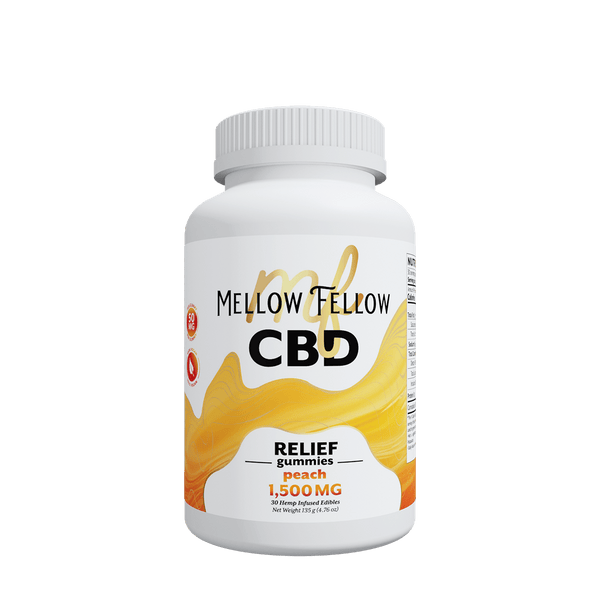
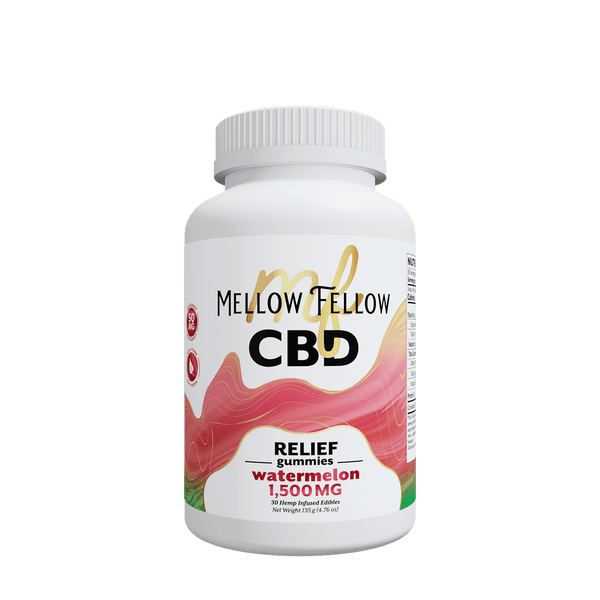
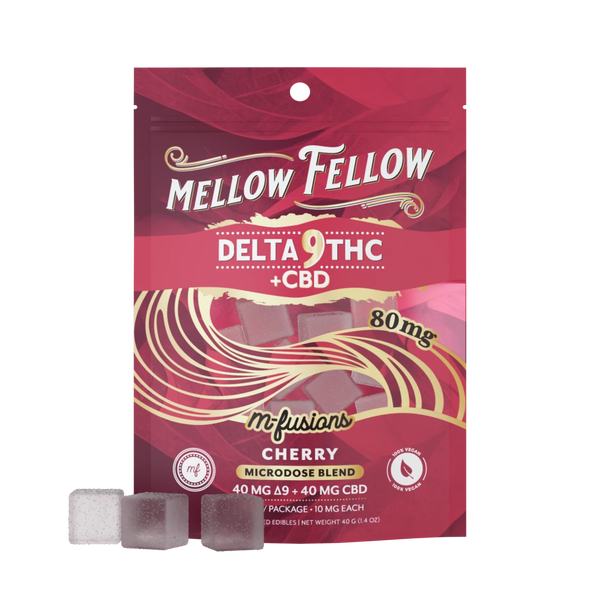
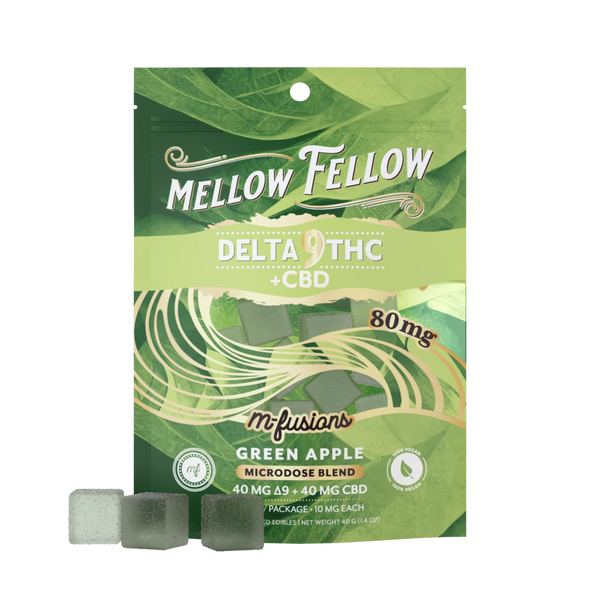
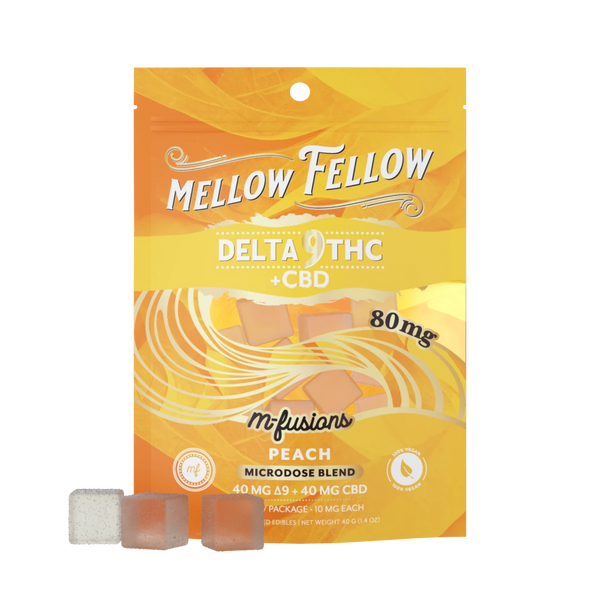











Leave a comment